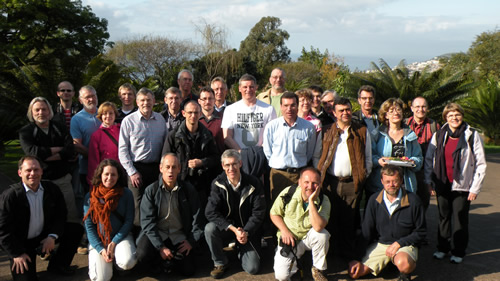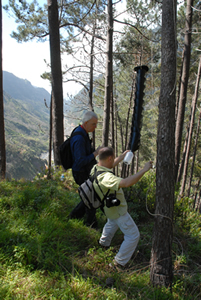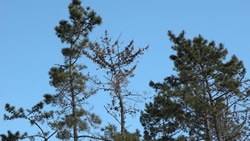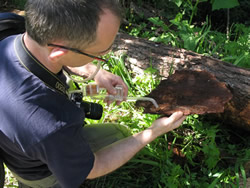
16th Meeting of the Panel on Quarantine Pests for Forestry
Madeira, PT, 2011-03-29/31
The 16th Meeting of the EPPO Panel on Quarantine Pests for Forestry took place in Madeira on 29 to 31 March 2011. The Panel discussed the 4th draft standard on National Regulatory Control System for Official control of B. xylophilus. The Panel agreed to include the “Outline of requirements” in the text and made several changes. The Panel did not agree to include a special text for measures in (sub)urban areas and decided to send the draft standard to the EPPO Working Party for Phytosanitary Regulations for adoption.

Participants - View more pictures ![]()
The Panel discussed the 3rd draft standard on National Regulatory Control System for Official control of Agrilus planipennis and comments from country consultations and the text of the standard was amended accordingly. The Panel agreed to send the text after EPPO Secretariat corrections and a last e-mail check by the Panel members to the EPPO Working Party for Phytosanitary Regulations for adoption.
The Panel discussed the Pest Risk Analysis for Agrilus anxius and had no more comments. It recommended to pass the PRA for consideration and approval by the EPPO Working Party for Phytosanitary regulations.
The Panel discussed the information available and the pre-PRA performed by Mr Hrašovec on Xylosandrus crassiusculus and recommended the EPPO Working Party for Phytosanitary Regulations to consider the pest for a full PRA. The Panel recognized that the host plants are very important in several areas of the EPPO region and the introduction of the pest could result in non-acceptable impact.
The Panel discussed the draft standard PM 9 on Anoplophora chinensis and went through the text specifically discussing the radiuses of regulated and clear-cut areas and proposed several changes. It decided to send the draft standard for country consultation and eventual consideration by the EPPO Working Party for Phytosanitary regulations.
The Panel considered pests of forestry concern in the updated EPPO Alert List and provided recommendations on them. The Panel recognized the need to study the situation with two Dothistroma species further in EPPO and under the COST Action project. The Panel recommended adding Polygraphus proximus to the EPPO Alert List and deleting Diaphania perspectalis and Psacothea hilaris from this List.
The Panel discussed risks associated with movement of bioenergy products and biomass and noted that in many cases wood material for bioenergy products is compressed, which significantly reduces the risk of pest transmission.



